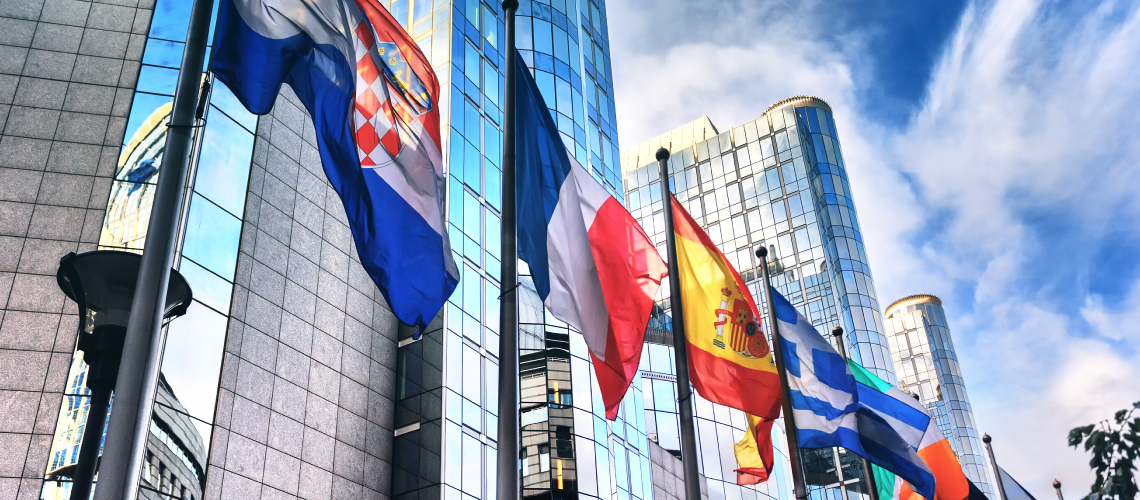
Globalization has allowed a world with a multitude of connections, of all kinds. Among them, the international relations between countries and institutions stand out. The ease of developing and maintaining these relationships in a globalized world has led to a wide growth of them. This has in turn generated an increase in the number of travels made by representatives of governments and institutions in the exercise of their duties, within the framework of a new tourism niche: the GITT (Governmental and Institutional Travel and Tourism) sector, which implies a series of peculiarities that differentiate it from any other sector.
It is undeniable that we live in a globalized world, understanding the term Globalization as the common integration of habits and rights, as well as the economic dimension of all the countries of the world. The cause and consequence of this phenomenon is the establishment of diplomatic ties between different countries in the world, in many cases reaching agreements in political, economic, social and environmental terms that are beneficial to both parties. Perhaps the greatest example of globalisation is the European Union, a geopolitical entity acting as an economic and political association. This union was established in 1993 with the signing of the Maastricht Treaty, and currently consists of 27 member states or countries. All this is one more field of study of the interactions between different countries in economic, political, diplomatic and legal terms within the discipline of International Relations.
At present, most countries and alliances constituted are focused on global warming, extreme climate, water scarcity, the fight against inequality, the spread of infectious diseases, cyber security, precarious employment, etc. The United Nations (UN) promotes 17 Sustainable Development Goals (SDGs) related to the above-mentioned dangers, which are framed in the Agenda 2030, constituting a great global challenge to be faced by the States before 2030.
Globalization is, without a doubt, the true triumph of International Relations, of the precepts established by the United Nations (UN) and, therefore, of governmental and institutional travels. At present, many of the relations established between States or territories are carried out with the aim of promoting joint cooperation in the search for the economic, cultural or social prosperity of those entities involved.
These relations - diplomatic, economic, cultural, etc. - between different countries, territories, institutions or organizations are usually managed through bilateral meetings, multilateral summits, forums or events, among others. This precept implies, necessarily, the displacement of the governmental and institutional members towards a destination different from their own residence. Initially, this type of travel has not been treated as it should be, partly because of the novelty of the concept of governmental travel in historical terms. Accordingly, the need to standardize governmental and institutional travels has been critical to understanding how they work and why they are performed. Differentiating them from ordinary tourism travels meant a great advance in their management. In a globalized world, this type of travel is carried out assiduously and is one of the cornerstones of international relations.
To understand this travel reality, and to know the set of relationships, phenomena and motivations that define this activity and how tourism agents can offer concrete solutions to the needs of governments and institutions, Tourism Optimizer Platform (TOP) has identified and developed this new concept of travel, called ‘Governmental and Institutional Travel and Tourism’., henceforth GITT. GITT is understood as all those travels and activities carried out by the representatives of the different Governmental Institutions in the diplomatic missions and actions of protocol or representation of their respective countries in the exercise of their functions. TOP has also led the creation of the "International Standard (GITT-Standard)", the only international technical reference that includes the flows, behaviours and processes of the travel sector of governments and large institutions, the ecosystem in which most international relations take place.
The organization of a GITT travel is a complex activity that must attend to the specific needs and requirements of this type of displacements due to the peculiarity of this sector. Once the general and particular characteristics of this type of unique client are identified and defined, it is essential to find out about the rest of the stakeholders in the GITT sector, both public and private agents and companies, as the specialisation and standardisation of the stakeholders is undoubtedly necessary for correct organisation.
The definition and standardization of governmental and institutional travels as a sector in itself has allowed, and continues to allow, international relations, in a globalized scenario, to be developed normally according to the standards and requirements of this type of travel.



